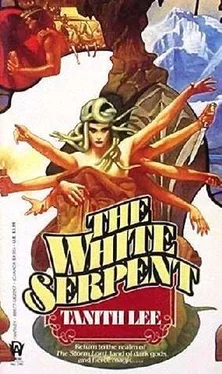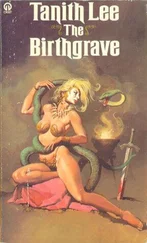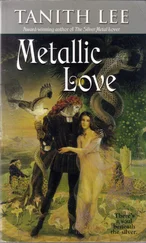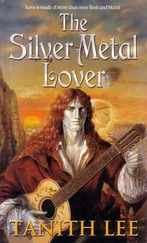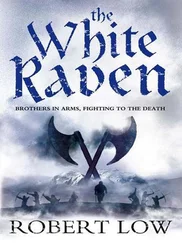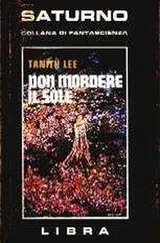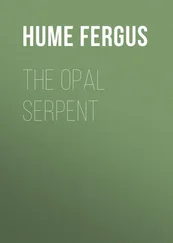New Alisaar loathed white Lowlanders and demanded money (Kuzarl’s), and sneered behind its fingers, but was also afraid.
Aztira subtracted funds but only one servant from Kuzarl, a mix girl with tawny eyes. Aside from this, Aztira, in the coastal city, broke free of Kuzarl entirely. He was cleaving to her, although she had not lain with him, as if he were her lover—protective, possessive. He brought pearls to lave her feet and she directed him at once away.
During the last piece of journey out of Sh’alis, riding in a curtained litter, Aztira had given herself, doubtfully, to inner conflict.
It came to her she traveled beneath a shimmering blade. It came to her that, like a cipher of vengeance, she herself would be the precursor of the storm.
Saardsinmey was the target of the Amanackire sword. An upsurge of Vis arrogance was typified in it. What could be more suitable than to destroy such a thriving boast. Nothing need be threatened or claimed. The message of the act, even if received without knowledge would, on other levels, be understood exactly by every consciousness of Vis. And the Sea of Aarl swept the beaches of Saardsinmey, an oceanic earthquake zone with cellars of somnolent fire. . . . Walking about the streets of the ruby-tiled metropolis, the urge was on her repeatedly to smite them with hand or mind—For this she had come, to revel in aversion and foresight.
She dressed in white and veiled her white hair in whiteness. And surrendered herself to the flaming sweet tumult of pride, going up and down a city of the living dead.
The racial hysteria grew in her like a poison until it almost seared her out. She had not thought to resist or to question. She went on watching and waiting on the first intimations of destruction. Only then could she take her own departure. She must see it begin.
And in this heightened state, this sort of ecstasy, she started to hear a name, over and over. Even Kuzarl had uttered it. It was the name of a god—that was, one of the mortal gods of the mortal Vis.
The Lydian, they said. The Lydian, Lydian, Lydian.
Everything had been elevated or compressed to symbols by now, in her delirium of Power. So she regarded the virtue of this name, and said to it: The city makes you its soul. Then, the Lydian is Saardsinmey.
And she thought, He will die in the doom of the city, this man.
And she started to seek him out, but in a dream. She did not, in fact, set eyes on him. Nevertheless, suddenly, in some supernatural manner, she found him. In the slang of Vis she was a sorceress. She “looked” at Saardsinmey’s Lydian, and “saw.”
Scattered across the world, probably, there might be others, the brood of palace women and freed slaves. Yet here, at this node of history, an ultimate of symbols had occurred. The death of the boastful city could encompass a death of the bloodline of the Genocide.
Saardsinmey, the Lydian: Amrek, the Shadow.
She witnessed only a moment of the famous race, from a balcony near the end of Five Mile Street—the chariots tore down the night in a molten river, torch-fire and screaming, and were gone.
He would be the victor. She had already judged that.
Purchased outside an inn, by an alley, two birds slain for a supper. Galvanized from corruption by her white hands, she sent them where she had learned they would be noted, for the Lydian.
Victory is transient. Since he is, tonight, your city, tell him this.
Earthquake had spoken before she did, out at sea, a promise. The sword in the starry sky and she its messenger—
That had been the apex of her flight.
Immediately after, she plunged to the nadir below.
She, too, was to die in Saardsinmey.
Not in the cataclysm. For her, it would be sooner.
She woke in a lucid dawn, aware. (The pink petals of sunrise glimmered on her couch, as she lay in the old house behind the lacemakers, by the street they called Gem-Jewel. . . .)
The unheard bellow of the city’s gathering death had obscured the lower crying that was her own.
She was not yet nineteen. She struggled and beat death away, there in her mind, in dawn and silence, alone. But the huge black hawk came down again upon her heart, and settled there, folding its wings. And she accepted.
She beheld then in a bright fragment, how it was to be, and that it came through him, her ending—the Lydian, the Shadow. He was her death, and, strangely she was his—but his life, also.
In a trance she rose and went about her day as ever, and when the evening stooped on the streets she walked out unguarded, on foot, and chanced on the means. As she had known she should.
The means was the carriage of a stadium dancer, a coal-black Zakorian. (The Balance, always that, dark with pallor.)
“The Lydian . . . tell me how he’s to be come at.”
The Zakor girl fenced a while. Her brain snarled and veered, and with no effort Aztira read it.
“Thank you,” said Aztira, like a killing snow.
And under the columned midnight arches near Sword Street, she lingered, and saw him stride out into the eye of the lamp. Rehger, the Lydian.
In him there was a completeness, to her gaze obvious at once. The savagery of leopard and lion, the gentleness of doves, the calm of deep water, the edge and might of fire. Yet, something unfinished too, something awry. The life had begun—but not moved in its allotted course. Like a star wrenched from its sky. Oh, the star blazed—She was pierced by the brilliancy of him, burnt.
Amrek—Vis—mortal—bronze almost to black—out of the Shadow, the light.
For myself, I loved you, from the moment I saw you I believe.
Though he denied her, he would come to her.
And though she conceded it was now inevitable, she had forgotten death.
(Aztira stood like an icon before the glass window in the tower at Ashnesee. The moon had ascended to the roof Beyond the city and the walls, the plain was a sea of night.)
They were lovers then, life with death mingling. She has won him to her by priestly trickery, in the childish wickedness of her delirious desire, herself half-hypnotized by the acceptance of fear. She had won him by death-dealing. (She saved Chacor, their victim, that she should owe the Corhl nothing. She had brought the boy back from the blow of Rehger’s sword as she would have led an animal from some crumbling pit into which it had strayed, frightened by her voice.) She was in three conditions—shame, hubris, love. She was flung from each height into another or into an abyss, and all this she showed Rehger plainly, not in the telepath’s way, but in the woman’s.
Finally, she was able to become with him only that, a woman. A blissful peace enveloped her. The battle was done. Fatalistically, she dismissed the destiny of the city, and did not listen to the footfall of her own particular death.
Even so, she detected it.
Then—she saw how the pattern might be resolved, and how—in the jaws of a whirlwind—her dying should stay Rehger for life.
She bought Panduv’s tomb. (Black for whiteness.)
Panduv would survive; Aztira knew it, just as she knew the milk that day had venom in it. She had paid well for her own murder, coins for lilies and bane. She had consented.
And even as she penned her letter to him, to her lover and her love, she had gloried in her Amanackire Power, which held pain far off. She had exalted that she no longer dreaded to die. And, lying down softly on the couch, she had cast herself adrift, as it seemed into a tremendous nothingness, like slumber, sensuous and enfolding.
He would live through her, he could not forget her, now. She had left behind a shrine of gold and silver and could go to sleep.
But, ah—what came after—
“No,” she said aloud, the woman at the window.
The horror which had been, there in the black tomb, empty and swilled by water, this she resisted, would not recollect. Her exclamation, charged with her will, started a soundless vibration in the tower room.
Читать дальше
